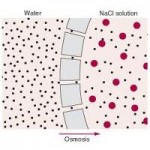04.07.14Readers: Please Help Me with Positive Framing!
 I’m writing about Positive Framing … the final steps of TLAC 2.0 and I want to give some examples. What I’ve come up with is OK but the insights I got when I asked for input from readers on Exit Tickets was so good that I thought I’d enlist your collective advice again.
I’m writing about Positive Framing … the final steps of TLAC 2.0 and I want to give some examples. What I’ve come up with is OK but the insights I got when I asked for input from readers on Exit Tickets was so good that I thought I’d enlist your collective advice again.
For this exercise, please assume that you’re teaching science and asked your students to write a short summary of how osmosis works and to use technical and precise language. [If you don’t know the science please keep reading; it won’t keep you from adding your advice!]
Jonathan describes the process of osmosis, but his description lacks technical vocabulary. He writes something like, “Osmosis is the movement in and out of a cell by water to where its less concentrated.” I think most science teachers would say that a correct answer would need to mention words like ‘membrane’ and permeable,’ ‘permeability’ or ‘semi-permeable’ to differentiate osmosis from diffusion as well as some of these terms to capture the full idea: solute, solvent, dissolved and molecules. At least this is my lay understanding. But again, please note even if you don’t know the science any better than me (or not at all), I still want your advice.
I’m writing about how you could give what’s essentially critical feedback–“You need to revise this to include technical vocabulary to make your description more precise”–but frame it so that the affective dimension makes the feedback motivating, caring and positive to Jonathan.
I batted around a few ideas:
- “Now see if you can make it sound like a scientist. I want to see the vocabulary you’ve learned in there!”
- Or even, “Impossible to think that a scholar like yourself forgot some of the juiciest vocabulary. Revise instantly and I will pretend i never saw it “
- “Vocabulary! I must have more vocabulary.”
- Or perhaps a more muted: “Ok, now see if you can put the idea into the words of a scientist.”
That said, I am sure you can all provide much better examples. So have at it–how would you Positively Frame this critical feedback. No promises, but great examples might just end up in TLAC 2.0.
A point of clarification: I am NOT talking about a “praise sandwich” here–ie praise-criticize-praise. That’s not actually what I see great teachers do. What they do is give the criticism, but make it feel warm, caring, and motivating, rather than wrapping it in praise and running the risk of eroding the sincerity and honesty of their praise over the long term.

Totally useful to use previous student work with this. I like having them do all of their writing in a notebook. So even more than, “I know you can make your writing more rigorous by using technical vocabulary!”, it can be more like, “Look at what you wrote last week. Look how amazing the vocabulary is. You know you can do this. Now revise what you wrote today to make it as amazing as what you wrote last week.” So you have the positive framing and they also have a model to work from.
How about getting them to use the work of a peer to support their developments e.g.
‘Look at the work of….. and focus on the vocabulary they have used. They have sounded like an expert. Im sure you could do the same!’
I can tell you know your stuff, so I know you want a chance revise your response to make it more college!
I might say/write, “If I you were going to explain this concept to scientists, how would you change your answer?” or “If you wanted your classmate to pass my test/this project/their lab report, how would you need to explain it to him/her more in precise and scientific terms so that he/she uses the right vocabulary on this test/project/lab report?”
Thanks for the good stuff so far. Hope you’ll all keep it coming. 🙂